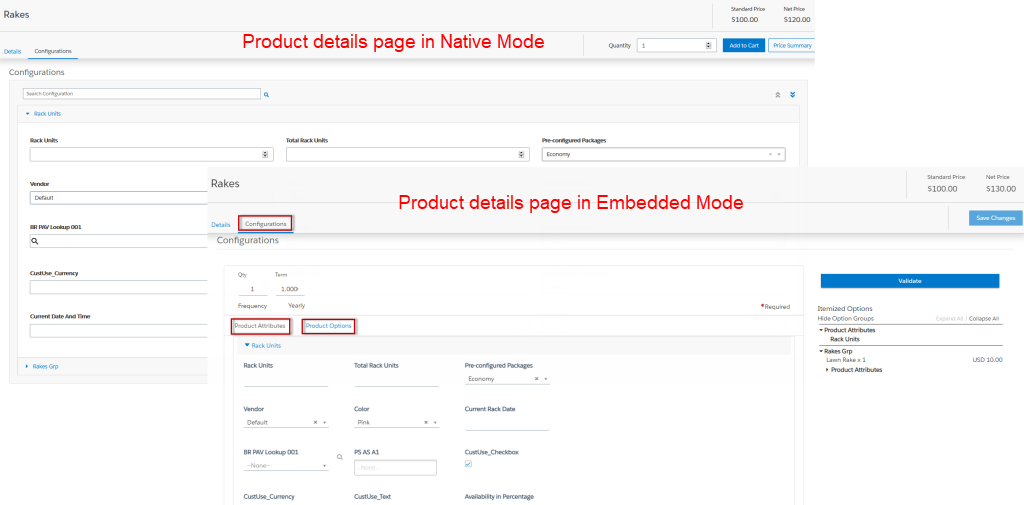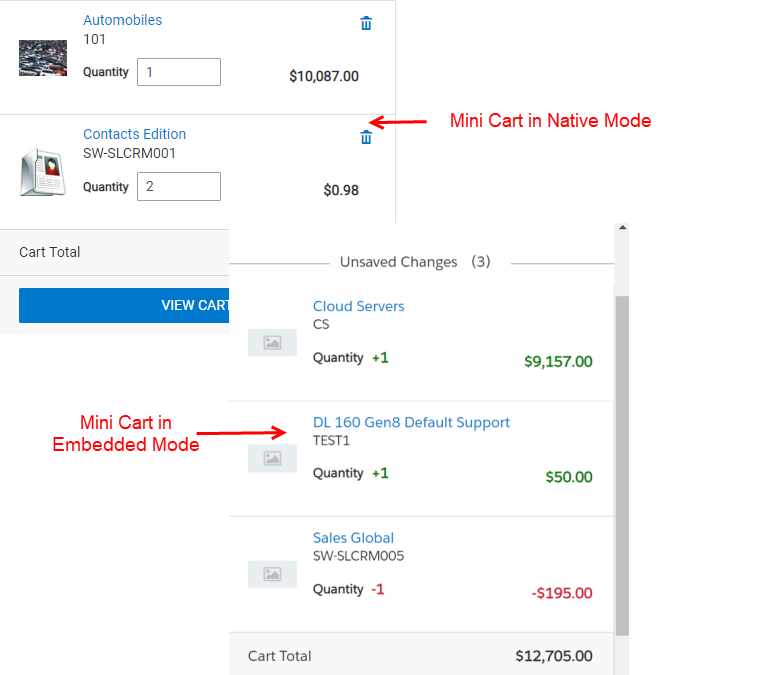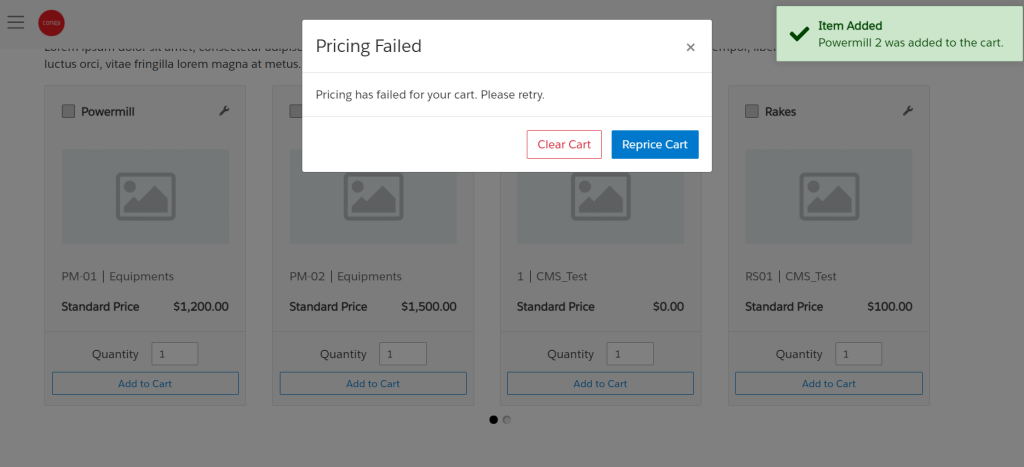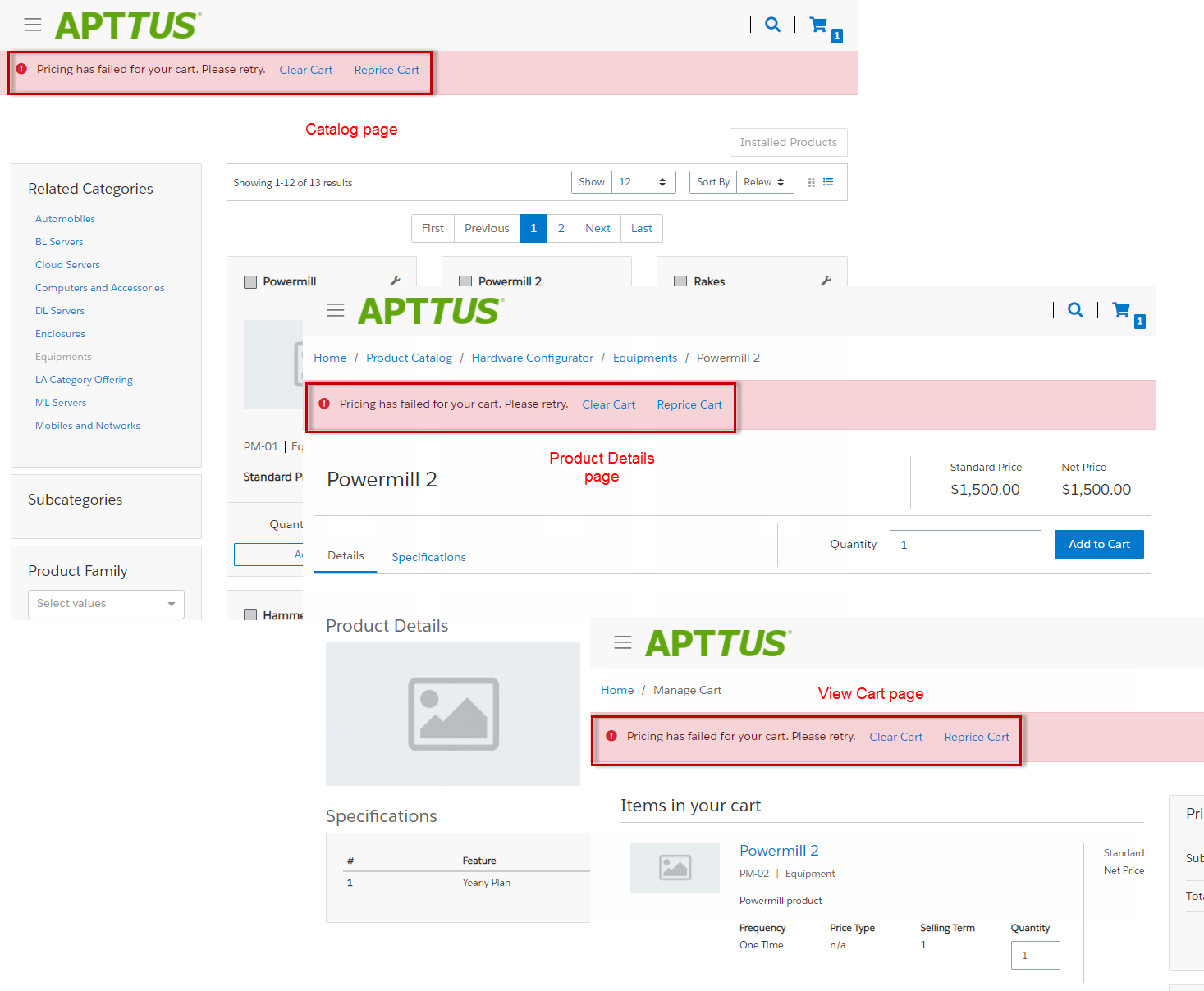Download PDF
Download page Conga Digital Commerce Spring '21 Release Notes.
Conga Digital Commerce Spring '21 Release Notes
This release note contains the following information about Digital Commerce Spring '21 Release.
For more information on new features, enhancements, and document improvements refer to What's new in Digital Commerce Documentation.
- Packages: Lists packages that are required to upgrade to this release of the product
- System Requirements and Supported Platforms: Lists requirements and recommendations for installing this release
- New Features: Provides high-level descriptions of new features introduced in this release, with links to more detailed information
- Enhancements: Provides high-level descriptions of enhancements to existing features
- Data Model Changes: Lists changes to the data model
- Resolved Issues: Lists customer-reported issues that are resolved in this release or known issues resolved from previous releases
- Known Issues: Lists known issues that are applicable in this release
This documentation may contain descriptions of software features that are optional and for which you may not have purchased a license. As a result, your specific software solution and/or implementation may differ from those described in this document. Please contact your CSM or AE for information on your specific features and licensing.
Packages
The following packages and dependent packages are required to upgrade to this release to utilize all the new features of this release. These are the minimum required versions; later versions are also supported. Separate prerequisites for each feature can be found in the respective guides. The packages marked as (New) are new packages in this release.
| Product | Latest Certified Version Version Name | Version Number |
|---|---|
| Conga Contract Lifecycle Management (New) | 12.0.0605 | 12.605 |
Conga Digital Commerce (New) | 5.0.131 | 5.131 Spring '21 This is a Turbo enabled release. For non-Turbo, see Digital Commerce Winter '20 documentation. |
| Conga Digital Commerce SDK (New) | 2101.0.102 (2101) |
Conga Quote Management (New) | 11.0.0242 | 11.242 |
Conga Base Library (New) (Pre-requisite for Installing Conga Configuration & Pricing) | 2.0.150 | 2.150 |
| Conga Configuration & Pricing (New) | 13.0.1882 | 13.1882 |
| Conga Quote Configuration Integration (New) | 13.0.0354 | 13.354 |
| Conga CPQ Setup (New) | 13.0.97 | 13.97 |
| Conga CPQ API (New) | 13.0.0120 | 13.120 |
Conga Promotions (Required if you are using Promotions) | 1.0.0000 | 1.0 |
Conga Quote Asset Integration (Required if you are using Assets Based Ordering) | 6.5.0014 | 6.14 |
| Conga Order Management | 1.0.0000 | 1.0 |
| Conga Billing (New) | 7.1.262 | 7.262 |
System Requirements and Supported Platforms
The following table lists the minimum requirements for installing and using Digital Commerce.
| System Requirement | Minimum Supported Version |
|---|---|
| Operating System | Standard Salesforce.com requirements. See Salesforce PDF. |
| Browser | Conga supports the following browsers:
Conga recommends the latest version of the browser for the best performance. Conga also recommends its customers to use Microsoft Edge Chromium as the browser of choice. Internet Explorer is not supported. |
Upgrade Notes
For more information on the prerequisites and post-upgrade tasks, see Upgrading Digital Commerce.
New Features
The following features are new to Digital Commerce in this release.
Support for Collaboration Header for Creating Collaboration Request
From the Spring '21 release, Digital Commerce uses the Collaboration header for creating collaboration request via API and SDK integration to create quotes and orders.
With API integration, the [POST] /collaborationrequests API is used to create collaboration request. Using [POST] /collaborationrequests/:recordId/carts, a cart is generated based on the collaboration request. This method when called copies the header fields from the collaboration request to the cart.
With SDK integration, a cart is created from the UI. You can add products to the cart and then checkout.
For Proposal and Checkout APIs to work seamlessly, you must assign appropriate user permissions to the custom fields in the Collaboration object.
Get Started
For Collaboration Request REST API details, see CPQ REST API Version 3.
Product Details Page and Mini Cart in Embedded Mode
In Embedded mode. the Product Details page outlines the product configuration section in an iframe. Embedded mode is applicable only for complex products.
When you select a product from the catalog, the product details page appears.

The mini cart displayed in Embedded mode is different. With the Embedded mode, there are two carts available, Main Cart and Secondary Cart. The main cart is the primary cart; whereas the secondary cart is the cart that shadows changes in the main cart and also holds the product being configured as a line item. Any changes to the main cart either manual or automatic (based on rules) are synced to the secondary cart immediately.

Get Started
For more details on the products details page in embedded mode, see Viewing the Product Details Page in Embedded Mode.
For more details on the products details page mini cart in embedded mode, see Working with the Mini Cart.
Enhancements
The following section describes existing features that are changed (or are no longer supported) in this release.
Additional Feature Support for TurboPricing
The following features and capabilities are now supported for TurboPricing:
- Base Price Adjustment
- Base Price Override
- Bundle Effective Adjustments (Group Adjustment)
- Bundle Only Adjustment
- Manual Adjustment
- Conditional Charge Type
- Price List Item Setting
- Price Matrix - Condition or Dimension
- Price Rule Entry - Effective Dates
- Price Rule Set
- Price Rules based on Product Group
- Price Type & Price Method
- Promotions
- Proration
- Selling Term
Get Started
For a complete list of feature capabilities in TurboPricing, see Supported Features in Digital Commerce With TurboPricing Integration.
Behavior on Pricing Failure
You can set up a pricing fallback when TurboPricing fails. The following flag is available in the environment file.
Flag | Description |
|---|---|
| pricingFallback | By default, this flag is set to False. When TurboPricing fails, an error message is displayed without any further action. Setting this flag to True enables the system to use CPQ pricing. |
You can also set up a pricing retry mechanism if you want further action when the TurboPricing or CPQ Pricing fails. When pricing fails a pop-up appears with the Retry and Clear Cart buttons.

When the user clicks Retry, Digital Commerce performs pricing again; when the user clicks Clear Cart, Digital Commerce clears the cart if you do not want it to perform repricing. If the user moves away from the pop-up without performing any action, these buttons are still available in the top bar of the Catalog, Product details, and View Cart pages.

Get Started
For details on the pricing mechanism, see Pricing Mechanism.Data Model Changes
The following objects and fields are introduced to or changed in the system or data model in this release.
Object | Fields | Description | System/User | New/Changed |
|---|---|---|---|---|
Storefront | Changed | |||
Enable API Filters | When enabled, additional data filters are applied to APIs related to Storefront. | User | New |
Resolved Issues
The following table lists the issue resolved in this release.
Case Number | Conga Internal ID | Description |
|---|---|---|
| 00112553 | DC-6315 | The application failed when deleting the line item from a cart that had only one item in it. |
| 00112390 | DC-6311 | Constraint Rule message appeared even after deleting the product in condition. |
| 00111969 | DC-6256 | While performing a search, a CPU timeout issue occurred. |
00111620 | DC-6243 | Incorrect currency was displayed in the Digital Commerce UI. |
| 00111278 | DC-6206 | Error messages were displayed after metadata change in an object due to API cache. |
The following table lists the known issue resolved from the previous release.
Conga Internal ID | Description |
|---|---|
| DC-5911 | After updating the configuration of an existing bundle and navigating to the view cart page to click the wrench icon displayed the previous option instead of the updated option. This was a known issue with TurboPricing integration only. |
| DC-5903 | TurboPricing integration supports 200 to 250 line items for the price calculation. |
Known Issues
The following table provides the cumulative list of known issues up to this release.
| Conga Internal ID | Description |
|---|---|
| DC-6334 | Constraint rule error message is displayed on the catalog page even though the primary cart had no errors. |
| DC-5906 | When you increase the quantity for one of the multi-charge types of a product and validate the change, the quantity is not updated and the net price is not properly calculated. |